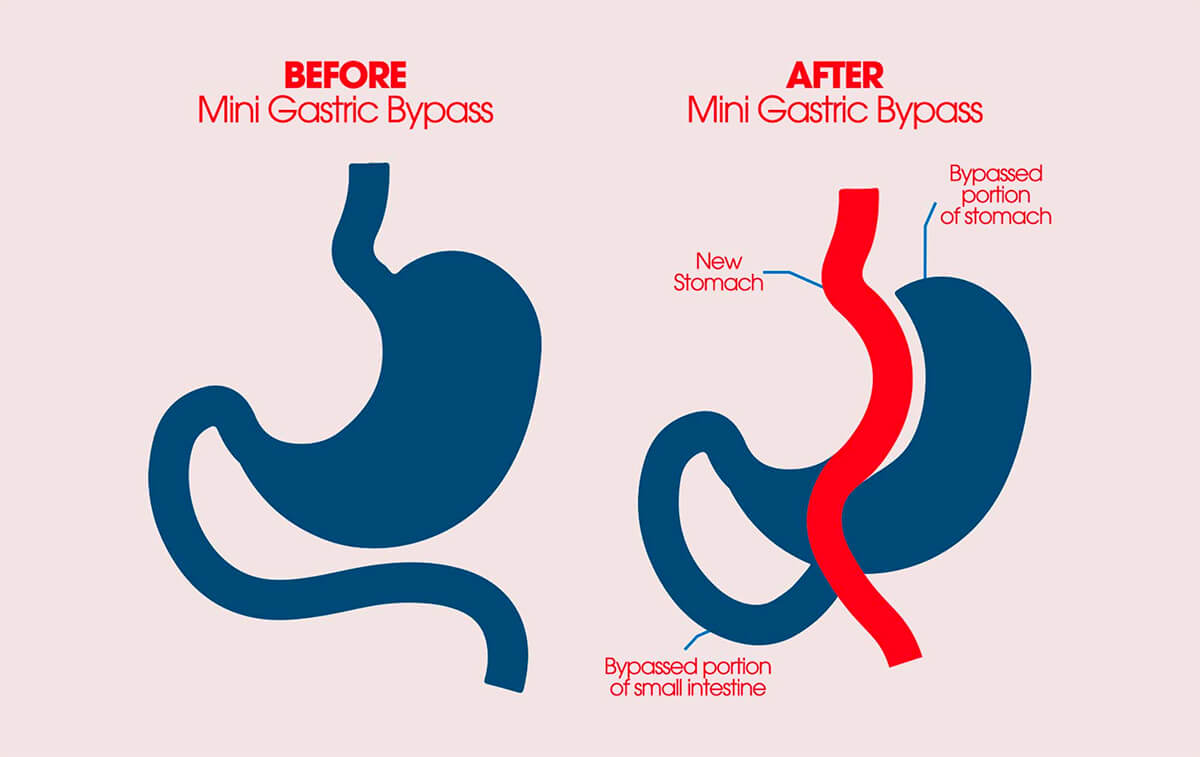Gastric Bypass
Gastric bypass is a surgical procedure that can help people with obesity to lose weight and improve their health. It decreases the size of the stomach and changes the way the stomach and small intestine absorb food, making it easier to lose weight. This procedure is also called a Roux-en-Y gastric bypass.

When should I consider gastric bypass surgery?
If you are very obese and have other health problems, and have tried hard to lose weight by dieting and doing more exercise, your doctor might suggest gastric bypass surgery to help with weight loss.
Gastric bypass surgery is a very effective type of surgery for weight loss, but it is not for everyone. Discuss with your doctor which approach is best for you, and talk about what to expect. You could ask:
- What’s the average loss of weight after a year?
- What’s the average loss of weight after 5 years?
- What’s my role after surgery?
Losing weight after gastric bypass surgery can help reduce problems with type 2 diabetes, asthma episodes and blood pressure, and can help improve heart health.
Get Free Quote